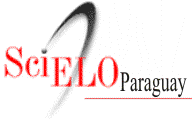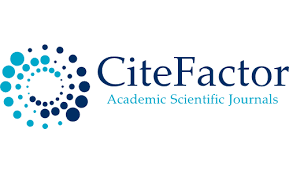Síndrome de Burnout en el personal de salud en un servicio de referencia de enfermedades respiratorias. Itapúa-2020
DOI:
https://doi.org/10.18004/mem.iics/1812-9528/2023.e21122312Palabras clave:
síndrome de burnout, personal de salud, salud mental, pandemia COVID-19, Itapúa, ParaguayResumen
Se define el Síndrome de burnout como una respuesta al estrés prolongado en el trabajo, un síndrome psicológico que nace de la tensión crónica. En Paraguay se confirmó la primera infección por COVID-19 el 7 de marzo de 2020, estableciéndose medidas de aislamiento y distanciamiento social preventivas por parte del Ministerio de Salud Pública. El objetivo de este trabajo fue estimar la prevalencia del síndrome de burnout en profesionales de un hospital de referencia, en una zona fronteriza de Paraguay durante abril 2020. Para cuantificar el grado de burnout del personal se utilizó el cuestionario Maslach Burnout Inventory (MBI) en español, que explora las tres dimensiones del síndrome. Se define como síndrome de burnout el hecho de presentar una gran fatiga emocional, una alta despersonalización y una baja realización personal. En este estudio se encontró una prevalencia de 4,6% del síndrome de burnout, de los cuales 80% eran del género femenino y tenían edades mayores o iguales a 44 años. El valor hallado en este estudio es bajo, pero es importante destacar que la investigación se realizó a inicios de la pandemia, cuando en la ciudad aún no se contaban con casos activos. En cuanto a los indicios de burnout, el 64,8% reportó niveles de factores asociados a padecer el síndrome. A pesar de ser un estudio realizado en meses previos a la aparición de casos, más de la mitad de los encuestados ya presentaban niveles altos en al menos uno de los indicios asociados al síndrome de burnout.
Descargas
Citas
Freudenberger H. Agotamiento del personal. Revista de Cuestiones Sociales. 1974; 30(1).
Maslach C, Schaufeli WB L. Job burnout. Annu Revista Psychol. 2001; 52.
OMS. Actualizaciones continuas sobre la enfermedad por coronavirus (COVID-19). [Online].; 2020 [cited 2020. Available from: Available from: http://www.who.int/ .
Ferguson NM, Laydon D, Nedjati-Gilani G, Imai N, Ainslie K, Baguelin M, et al. Estimating the number of infections and the impact of non-pharmaceutical interventions on COVID-19 in 11 European countries. Imperial College COVID-19. 2020; (13).
Beveridge W. La crónica de las epidemias de influenza. Hist Philos Life Sci. 1991; 13(2).
CSSE. Coronavirus COVID-19. Global Cases by the Center for Systems Science and Engineering (CSSE) at Johns Hopkins University (JHU). 2020.
MSPyBS. Contador COVID-19 PY. [Online]. ; 2020 [cited 2020. Available from: Available from: https://www.mspbs.gov.py/covid-19.php?q=CORONAVIRUS&modo=1 .
Loiwal M. Aumento del 20% en pacientes con enfermedades mentales desde el brote de coronavirus. encuesta. ; 2020.
Kang L, Li Y, Hu S, Chen M, Yang BX, Wang Y, et al. The mental health of medical workers in Wuhan, China dealing with the 2019 novel coronavirus. The Lancet Psychiatry. 2020; 7(3).
Xiang YT, Yang Y, Li W, Zhang L, Zhang Q, Cheung T, et al. Timely mental health care for the 2019 novel coronavirus outbreak is urgently needed. The Lancet Psychiatry . 2020; 7(3).
Dugani S, Afari H, Hirschhorn LR, Ratcliffe H, Veillard J, Martin G, et al. Burnout and somatic symptoms among frontline healthcare professionals at the peak of the Italian COVID-19 pandemic. Psychiatry Research. 2018.
SCCM. Sociedad de Medicina de Cuidados Intensivos. Los médicos informan un alto estrés en la respuesta de COVID-19. [Online].; 2020.
Huang JZ, Han MF, Luo TD, Ren AK, Zhou XP. Zhonghua lao dong wei sheng zhi ye bing za zhi = Zhonghua laodong weisheng zhiyebing zazhi = Chinese journal of industrial hygiene and occupational diseases, 2020; 38(3): 192-5. https://doi.org/10.3760/cma.j.cn121094-20200219-00063
Zerbini G, Ebigbo A, Reicherts P, Kunz M&MH. Carga psicosocial de los profesionales de la salud en tiempos de COVID-19: una encuesta realizada en el Hospital Universitario de Augsburg. Ger Med Sci. 2020.
Morgantini L, Naha U, Wang H, Francavilla S, Acar Ö, Flores JM, et al. Factors Contributing to Healthcare Professional Burnout During the COVID-19 Pandemic. A Rapid Turnaround Global Survey. SSRN Electronic Jornal. 2020; 1(617).
Albieri D, Salvagioni J, Melanda FN, Mesas AE. Physical, psychological and occupational consequences of job burnout : A systematic review of prospective studies. PLoS ONE 2017; 12(10):e0185781: 1-29.
Chan-Yeung M. Severe acute respiratory syndrome (SARS) and healthcare workers. International journal of occupational and environmental health, 2004; 10(4): 421-427.
West CP, Dyrbye LN, Erwin PJ, D &STD. Interventions to prevent and reduce physician burnout : a systematic review and meta-analysis. The Lancet. 2016; 6736 (16).
Aguilar S. Fórmulas para el cálculo de la muestra en investigaciones de salud. Salud en tabasco, 2005; 11(1-2): 333-8.
Ruiz Morocho ME, Patiño Samaniego WK, Mendoza García BI, Aguilar Ruiz RP. Prevalencia del síndrome de burnout durante la pandemia covid-19 en el personal de salud. jah [Internet]. 2 de agosto de 2022 [citado 6 de junio de 2023]; 5(2). Disponible en: Disponible en: https:// jah -journal.com/index.php/jah/article/view/140
Salviato, LS, Vasconcelos filho, P de O. Síndrome de Burnout en profesionales de la salud en un escenario pandémico Covid-19: análisis de un hospital universitario. Revista Científica Multidisciplinar Núcleo do Conhecimento. 2021; 6(8): 27-44. ISSN: 2448-0959, Enlace de acceso: https://www.nucleodoconhecimento.com.br/psicologia-es/un-hospital-universitario
Lai J, Ma S, Wang Y, Zhongxiang C, Jianbo H, Ning W, et al. Factors Associated With Mental Health Outcomes Among Health Care Workers Exposed to Coronavirus Disease 2019. JAMA Netw Open. 2020; 3(3): e203976. doi: 10.1001/jamanetworkopen.2020.3976
Qiongni C, Mining L, Yamin L, Jincai G, Dongxue F, Ling W. et al. Mental health care for medical staff in China during the COVID-19 outbreak. The Lancet Psychiatry , 2020; 7(4): e15-e16.
Sasangohar F, Jones SL, Masud FN, Vahidy FS, Kash BA. Provider Burnout and Fatigue During the COVID-19 Pandemic: Lessons Learned From a High-Volume Intensive Care Unit. Anesthesia and analgesia, 2020: 131(1): 106-11. https://doi.org/10.1213/ANE.0000000000004866
Matsuo T, Daiki K, Fumika T, Fumie S, Yuki U, Nobuyoshi M, Tsuguya F. Prevalence of health care worker burnout during the coronavirus disease 2019 (COVID-19) pandemic in Japan. JAMA network open, 2020; 3(8): e2017271-e2017271.
Lasalvia A, Amaddeo F, Porru S, Carta A, Tardivo S, Bovo C, et al. Levels of burnout among healthcare workers during the COVID-19 pandemic and their associated factors: a cross-sectional study in a tertiary hospital of a highly burdened area of north-east Italy. BMJ Open 2021; 11(1): 7.
Torrente M, Sousa PAC, Sánchez-Ramos A, Pimentao J, Royuela A, Franco F, et al. To burn-out or not to burn-out: a cross-sectional study in healthcare professionals in Spain during COVID-19 pandemic. BMJ Ope 2021; 11(2): e044945. doi: 10.1136/bmjopen-2020-044945
Jácome C, Seixas A, Serrão C, Teixeira A, Castro L, Duarte I. Burnout in Portuguese physiotherapists during COVID-19 pandemic. Physiother Res Int 2021; 26:e1915.
Ferry AV, Wereski R, Strachan FE, Mills NL. Predictors of UK healthcare worker burnout during the COVID-19 pandemic. QJM 2021; 114: 374-80.
Jalili M, Niroomand M, Hadavand F, Zeinali K, Fotouhi A. Burnout among healthcare professionals during COVID-19 pandemic: a cross-sectional study. Int Arch Occup Environ Health. 2021; 94: 1345-52.
Giusti EM, Pedroli E, D’Aniello GE, et al. The Psychological Impact of the COVID-19 Outbreak on Health Professionals: A Cross-Sectional Study. Front Psychol 2020; 11: 1684.
Barello S, Palamenghi L, Graffigna G. Burnout and somatic symptoms among frontline healthcare professionals at the peak of the Italian COVID-19 pandemic. Psichatry Research [Internet]. agosto de 2020; 290. Disponible en: https://www.sciencedirect.com/science/article/abs/pii/S0165178120311975
AlJhani S, AlHarbi H, AlJameli S, Hameed L, AlAql K, Alsulaimi M. Burnout and coping among healthcare providers working in Saudi Arabia during the COVID-19 pandemic. Middle East Curr Psychiatry. 2021; 28(1): 29. doi: 10.1186/s43045-021-00108-6. Epub 2021 Jun 10. PMCID: PMC8189724.
Martínez F, Azkoul M, Rangel C, Sandia I, Pinto S. Efectos de la pandemia por COVID-19 en la salud mental de trabajadores sanitarios del estado Mérida, Venezuela. GICOS 2020; 5(e2): 77-88. https://dialnet.unirioja.es/servlet/articulo?codigo=7674979
Vinueza Veloz AF, Aldaz Pachacama NR, Mera Segovia CM, Pino Vaca DP, Tapia Veloz EC, Vinueza Veloz MF. Síndrome de Burnout en médicos/as y enfermeros/as ecuatorianos durante la pandemia de COVID-19. 2020; 21.
Valencia González EG, Correa Sinche DA, Pazmiño Cruz VK. Síndrome de Burnout en personal de salud que brinda atención a pacientes con COVID-19. Revista Scientific 2021; 6(21): 144-62. https://doi.org/10.29394/Scientific.issn.2542-2987.2021.6.21.7.144-162
APA. American Psychological Association. Qué hacen los psicólogos en las operaciones de socorro en casos de desastre. [Online].; 2014 [cited 2020. Available from: Available from: https://www.apa.org/helpcenter/disaster-site













